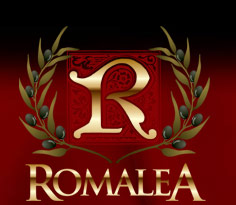|
EXTRA VIRGIN OLIVE OIL: 5.000 YEARS OF HISTORY!
Homer called it "liquid gold."
In ancient Greece, athletes ritually rubbed it all over their body. Its mystical glow illuminated history. Olive oil has been more than mere food to the people of Greece: it has been medicinal, magical, an endless source of fascination and wonder and the fountain of great wealth and power.
The olive tree, symbol of abundance, glory and peace, gave its leafy branches to crown the victorious in friendly games and bloody war, and the oil of its fruit has anointed the noblest of heads throughout history. Olive crowns and olive branches were emblems of benediction and purifiation.
Olive culture has ancient roots. Fossilized remains olive brunches were found in Kaldera (in Santorini island) dating from 60.000 years ago! Olives were first cultivated in the beginning of 5000 B.C. and until 1400 B.C., olive cultivation spread from Crete to the northern areas of Greece. Until 1500 B.C., Greece (particularly Mycenae) was the area most heavily cultivated. With the expansion of the Greek colonies, olive culture spread in the entire Mediterranean basin.
Olive trees dominated the rocky Greek countryside and became pillars of Hellenic society; they were so sacred that those who cut one down were condemned to death or exile. In ancient Greece, olive oil was the hottest commodity; advanced ships were built for the sole purpose of transporting it from Greece to trading posts around the Mediterranean.
The belief that olive oil conferred strength and youth was widespread. In ancient Greece it was infused with flowers and with grasses to produce both medicine and cosmetics; a list was excavated in Mycenae enumerating the aromatics (fennel, sesame, celery, watercress, mint, sage, rose, and juniper among others) added to olive oil in the preparation of ointments.
Olive trees have an almost titanic resistance, a vital force which renders them nearly immortal. Despite harsh winters and burning summers, despite truncations, they continue to grow, proud and strong reaching towards the sky, bearing fruit that nourishes and heals inspires and amazes. Temperate climactic conditions, characterized by warm dry summers and rainy winters, favor plentiful harvests; stone, drought, silence, and solitude are the ideal habitat for the majestic olive tree. There are about thirty varieties of olives growing in the Mediterranean basin today, and each yields a particular oil with its own unique characteristics.
Extra-virgin olive oil comes from the first pressing of the olives, contains no more than 0.8% acidity, and is the most digestible of the edible fats: it helps to assimilate vitamins A, D and K; it contains so-called essential acids that cannot be produced by our own bodies; it slows down the aging process; and it helps bile, liver and intestinal functions. It is also valued for its culinary virtues and organoleptic properties as well.
Last nut not least, Extra Virgin Olive Oil is the main ingredient of the so called «Meditteranean Diet», scientifically uknowledged to be one of the most balanced and healthy diets in the world. Research evidence suggests, that eating about two tablespoons (23 grams) of olive oil daily may reduce the risk of coronary heart disease due to the monounsaturated fat in olive oil.
|
